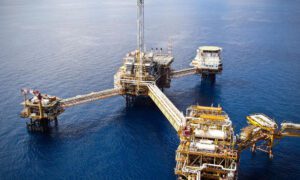
10th National Assembly and the case of N110bn for bulletproof vehicles, other luxuries
There is great contention and eyebrows raised concerning the whopping sum of N110 billion carved out by Mr. President, Bola Ahmed Tinubu to members of the 10th National Assembly to purchase bulletproof vehicles, palliatives among other logistics needs.
Few days ago, Human Rights Activist and Lawyer, Femi Falana in a statement branded the N110 billion palliative allocation to the National Assembly as unconstitutional and insulting. He demanded that the controversial measures be reversed immediately, citing a clear violation of the relevant provisions of the Constitution.
N70 billion was distributed to newly elected members of the National Assembly, in addition to N40 billion made aside for the purchase of SUVs and bulletproof cars for senior officials and lawmakers.
The activist lawyer condemned the allocation, accusing the National Assembly of being cruel and insensitive in the midst of Nigeria’s economic problems. Falana emphasised that the distribution violated Section 70 of the Federal Republic of Nigeria Constitution of 1999, which specifies the appropriate salaries and allowances for members of the National Assembly.
He argued that palliative of N110 billion for National Assembly members is illegal and contemptuous.
“Out of sheer insensitivity coupled with impunity, members of the National Assembly, regardless of political affiliation, conspired to breach the relevant provisions of the Constitution of the Federal Republic of Nigeria, 1999 by padding the Supplementary Appropriation Bill, 2023 to provide the so-called palliative of N70 billion for 306 newly elected members,” according to the statement.
“While the masses of Nigeria groan under the excruciating economic pains inflicted by the ruling class, the National Assembly has awarded N228.7 million to each newly elected legislator. As if that wasn’t enough, National Assembly members have set aside N40 billion to purchase 465 Sports Utility Vehicles (SUVs) and bulletproof cars for principal officials and members.”
However, legislators granted N500 billion in help for 12 million needy people in a country where the National Bureau of Statistics reports that “62.9 per cent of people (133 million) are multidimensionally poor.”
The forefront lawyer described the funds as callous and insensitive acts of National Assembly members constitute a gross violation of Section 70 of the Constitution of the Federal Republic of Nigeria, 1999, as amended, which states: “A Senate or House of Representatives member shall receive such salary and other allowances as the Revenue Mobilisation Allocation and Fiscal Commission may determine.”
Similarly, the Socio-Economic Rights and Accountability Project, SERAP, has asked the Senate President and the Speaker of House of Representatives, Godswill Akpabio and Tajudeen Abbass, respectively, to halt the planned spending of N110 billion on bulletproof cars and palliative for members.
The group stressed that N110 billion can be used to address the problem of out-of-school children. SERAP described the alleged act as a breach of public trust, repeal the 2022 Supplementary Appropriation Act to reduce the budget for the National Assembly by N110bn, reflect the current economic realities in the country and address the impact of the removal of fuel subsidy on the over 137 million poor Nigerians.
Authoritatively, with the persistent hardship on Nigerians occasioned by government negligence, one can categorically thump down on the leadership of the 10th National Assembly because there is an urgent need to cushion the effect of fuel subsidy removal.
Both the Executive and Legislative should focused on bringing succour to the masses with increase of inflation to 22.79 per cent in June as disclosed by the Nigeria Bureau of Statistics and hike in the fuel pump price to N617.
Understandably, the lawmakers as it is traditionally done in the past need new vehicles but the situation doesn’t warrant these expensive bulletproof vehicles as such bogus amount can be injected into salary increment for workers and empowerment for market women.
Ultimately, the Tinubu-led government should prioritise the infrastructural needs of the public as the ongoing economic downturn can ignite crime rate in the society.


